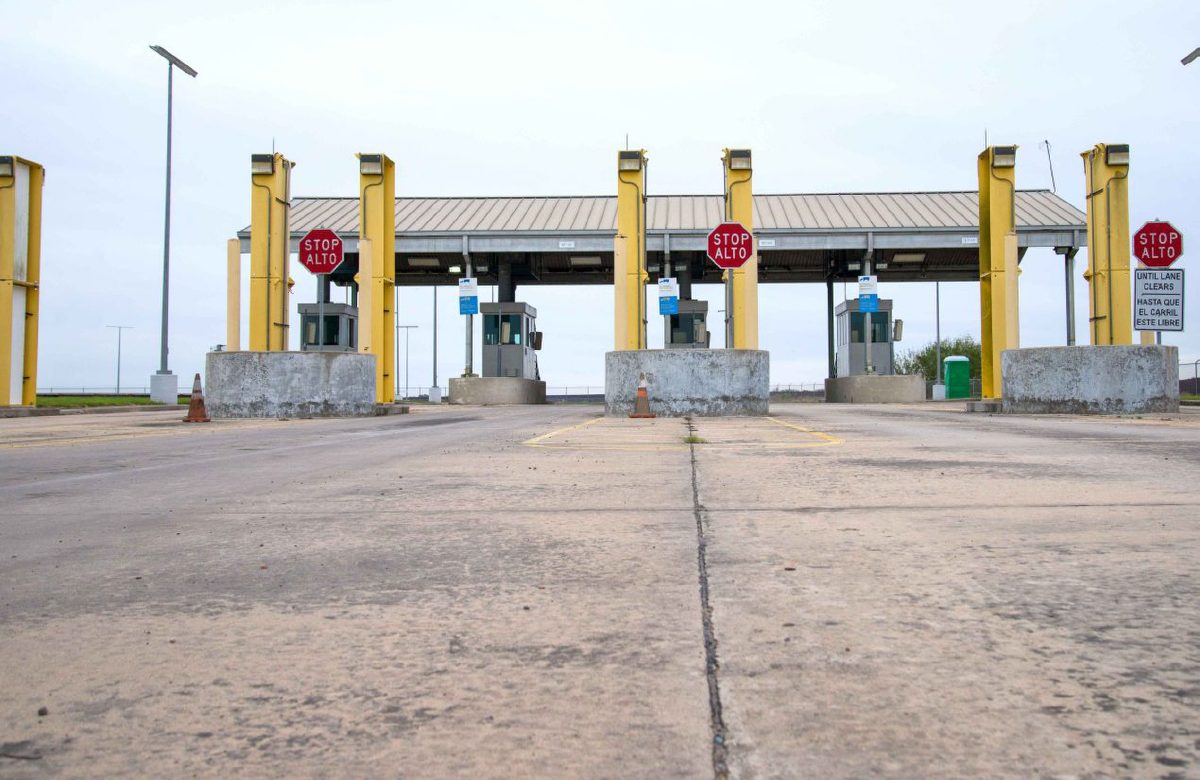
The Department of Justice has charged a dozen people, including the son-in-law of a former Gulf Cartel leader, with extorting at least $27 million from transmigrantes and using threats of violence to include four murders in Mexico to monopolize the border industry.
Transmigrantes are people who transport used vehicles and other goods from the U.S. into Mexico that are later resold in Central America.
Anyone who has regularly traveled south on Highway 281 and 77 would recognize them as they are routinely traveling south towing multiple vehicles at a time.
When the transmigrantes arrive in the Rio Grande Valley, they head to the Los Indios port of entry where forwarding agencies provide services like helping clients complete customs paperwork to export the vehicles into Mexico.
The 12 arrests and 11-count indictment stem from a long-running, multi-faceted conspiracy to monopolize the industry.
The indictment alleges that 36-year-old Mission resident Carlos Favian Martinez, who is the son-in-law of an unidentified former Gulf Cartel leader, and Marco Antonio Medina, 32, Rigoberto Brown, 36, and Miguel Hipolito Caballero Aupart, 70, all of Brownsville, conspired to fix prices and allocate the market for transmigrante services.
Pedro Antonio Calvillo Hernandez, 47, of Tamaulipas; Roberto Garcia Villarreal, 56, of San Benito; Sandra Guerra Medina, 68, of Rancho Viejo; and Mireya Miranda, 56, of La Feria are also alleged to have conspired.
“The indictment alleges they implemented price-fixing agreements and created a centralized entity known as ‘The Pool’ to collect and divide revenues among the conspirators,” the DOJ said in a news release.
Transmigrante agency owners and industry participants who didn’t play ball with the fixed prices, refused to pay into the pool or declined to pay extortion fees faced threats, intimidation and acts of violence against themselves, their employees, associates and families.
The 28-page indictment lays out multiple instances of threats, intimidation and violence, including four murders in two shootings. There were also kidnappings, beatings and the burning of vehicles.
For instance, on Feb. 22, 2019, the daughter of one transmigrante who refused to participate was kidnapped along with her boyfriend.
Less than a month later, on March 7, 2019, one of this individual’s clients, Rocio Alderete, was shot just across the border in Mexico while helping organize transmigrante drivers into a caravan.
“Alderete died on the scene. C.R. survived. After the shooting, C.R. left the transmigrante industry,” the indictment stated.
Another person identified as L.G. also didn’t want to pay the extortion fee and on Oct 24, 2019, unknown people burned L.G.’s vehicles.
On Nov. 5, 2019, three of L.G.’s employees, including her nephew, were shot near the Los Indios port of entry.
“One victim, Abelardo Flores Mora, died at the scene. A second, Rodrigo Martin del Campo, died after being transported to a hospital located in the Southern District of Texas. And the third, L.G.’s nephew, Oscar Guerrero, died months later in the U.S. from the gunshot wounds,” the indictment stated.
Eventually, the suspects demanded that L.G. pay a $50,000 fine during a meeting at a Wendy’s in Harlingen for unauthorized work and for not paying the extortion fees, according to the indictment.
In all, L.G. paid $89,000.
In addition to Martinez, Medina, Calvillo and Garcia, the indictment charges 48-year-old Matamoros resident Diego Ceballos-Soto and 63-year-old Mission resident Carlos Yzaguirre with one count of conspiracy to interfere with commerce by extortion.
Lastly, Martinez, Medina, Calvillo, Ceballos-Soto and Yzaguirre are charged along with Brownsville residents Juan Hector Ramirez Avila, 32, and Jose de Jesus Tapia Fernandez, 44, with money laundering conspiracy and several other money laundering charges related to the alleged underlying scheme.
In all, between Jan. 1, 2014 and April 5, the indictment alleges that the suspects collected at least $27 million in extortion fees for a total of 675,000 transmigrante exports.
Jonathan Kanter, assistant attorney general of the DOJ’s Antitrust Division, said the suspects monopolized the industry through horrific violence and threats of violence.
“The department will use all the tools at its disposal — including Section 2 of the Sherman Act — to target anticompetitive conduct that undermines our country’s economic vitality and freedom,” Kanter said.
This law targets monopolies.
Kenneth A. Polite Jr., assistant attorney general with the DOJ’s Criminal Division, also noted the acts of violence in a statement.
“Together with our partners, we are committed to dismantling violent enterprises that victimize individuals simply trying to earn an honest living,” Polite said.
U.S. Attorney Jennifer Lowery said federal agencies will continue to pursue violent criminals.
“The charges announced today demonstrate our office’s commitment to protecting Texans from violent crime and exploitive business practices,” Lowery said.
Craig Larrabee, acting special agent in charge of Homeland Security Investigations San Antonio said the case is further proof that organized crime is active.
“These violent criminal organizations monopolized the transmigrante industry by using acts of violence, threats and even extortion,” Larrabee said. “HSI employs a full range of law enforcement techniques and cross-border authorities to combat this egregious criminal activity.”
Oliver E. Rich Jr., special agent in charge of the FBI San Antonio Division, said the case illustrates the FBI’s continued collaborative efforts with its law enforcement partners.
“The FBI remains dedicated to protecting American communities from threats of violence and economic crime.”



